Welcome to TechCrunch’s 2020 Holiday Gift Guide! Need help with gift ideas? We’re here to help! We’ll be rolling out gift guides from now through the end of December. You can find our other guides right here.
We published the TechCrunch list of the best books of 2020 last week, which included such titles as Barton Gellman’s Dark Mirror as recommended by our cybersecurity editor Zack Whittaker and Shoe Dog by Phil Knight, recommended by Lightspeed’s Nicole Quinn. In all, we selected nine books from our writers and VCs in the community that helped us get through 2020.
But maybe you are a straggler when it comes to reading, and you’re just catching up on your holiday book shopping. Or maybe you reviewed a book, and decided to take my deadline(s) for turning in said review liberally. With all the time we have indoors, nine books doesn’t really feel like enough these days, does it? So here are nine more books (plus one bonus) recommended by VCs and TechCrunch writers for 2020.
This article contains links to affiliate partners where available. When you buy through these links, TechCrunch may earn an affiliate commission.
No Filter: The Inside Story of Instagram by Sarah Frier
Simon & Schuster, 2020, 352 pages
Recommended by Alexia Bonatsos, founder and general partner at Dream Machine and former editor of TechCrunch
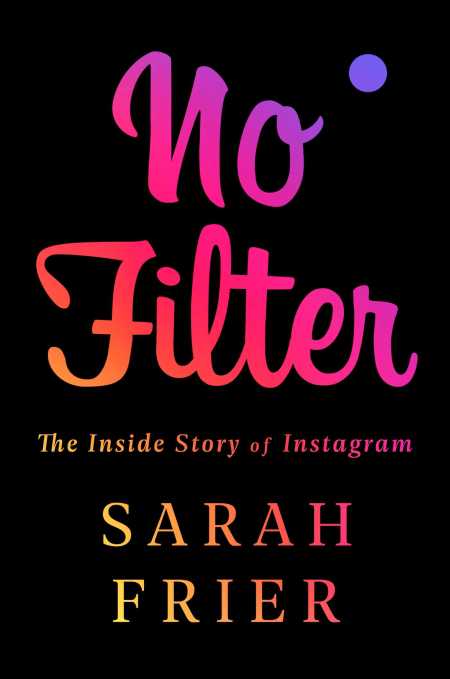
Most of the canonical “tech books” (Super Pumped, Hatching Twitter, Bad Blood) are written by men. In No Filter, Sarah Frier finally puts the female gaze on a tech platform, an achievement that mirrors that of my favorite movie of 2020, Portrait of A Lady On Fire. From now-famous street food vendors in São Paulo to a North Korean expat ‘gramming his meals in Pyongyang, Instagram has transformed our lives the same way it transformed our poorly lit iPhone photos.
The book chronicles this transformation, taking us from the Florence study abroad trip where Filippo Brunelleschi’s shift to linear perspective inspired Kevin Systrom to change how the world communicates to the Calabasas mansion where Kylie Jenner first posted about her ‘Kylie’ lip kits.
It takes us through the Great Authentication Wars of 2012: Twitter shutting off its contacts to Instagram, Instagram shutting off its photo integration with Twitter, and reminds you that before they were behemoths testifying in front of Congress, social networks could be Greek God-level dramatic with the smallest feature update. To quote Zuck (or Ozymandias), “If we don’t create the thing that kills Facebook, someone else will. The Internet is not a friendly place. Things that don’t stay relevant don’t even get the luxury of leaving ruins. They disappear.”
It also leaves us in the present. In No Filter, Instagram head Adam Mosseri states during a Q&A that the most important question Instagram faces is, “Are we good for people?” What do you think? Whether you believe in techno determinism or social determinism, this tome about how over one billion people found themselves living, working and playing on a photosharing app is a masterpiece filled with rich detail, Instagram in stark relief.
Price: $25 on Amazon
Radical Abundance: How a Revolution in Nanotechnology Will Change Civilization by K. Eric Drexler
PublicAffairs, 2013, 368 pages
Recommended by Matt Ocko, co-managing partner and co-founder of DCVC
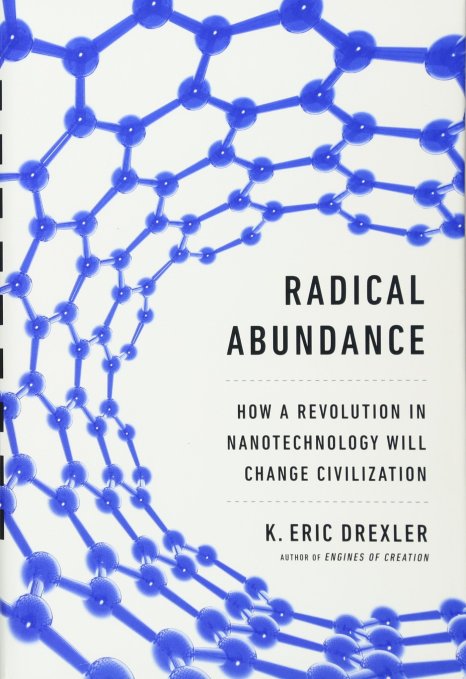
I like to re-examine how fragile the history of scientific progress is, and how easily humanity has been both derailed (sometimes for centuries) or leapt ahead. Alternatively, sometimes a scientific revolution happens quietly and slowly over a few decades even when it was seemingly derailed — even more interestingly, evolving very differently than its original, ardent proponents imagined.
An example of this case is nanotech, which is why I’ve been re-reading Dr. Eric Drexler’s Radical Abundance – the title is a goal my partners and I hope humanity achieves – and his more technical Nanosystems. Together, these books lay out the case for a nanotech-driven economy without most of today’s economic limits, but from a very “atoms-and-bits”-centric perspective. A well-realized possible outcome of this vision was depicted by Neal Stephenson, the sci-fi writer, in The Diamond Age. I’m not re-reading that now, but I heartily recommend it as part of a “nanotech book triptych”
The reason Drexler’s books merited re-reading this year for me is that many of his prerequisites for a nanotech economy of abundance are being achieved, but through computational and synthetic biology and related life-science breakthroughs. These platforms are getting living cells to do amazing things for humanity’s benefit. Ironically, it’s still his vision of robots following complex instructions in emergent systems, and even robots made of carbon — but not at all what he expected. A good lesson for everyone betting on radical innovation.
There’s still massive promise in “traditional” nanotech, and Deep Tech companies are doing everything from producing flawless slabs of diamond to transform computers and medical devices, to similar atomic-scale breakthroughs in quantum computing and sensor technology. In the end, who knows? Maybe we get both a fully-realized “diamond age” and the apotheosis of the “DNA age” we’re in right now. Humanity wins either way.
Price: $29 from Amazon
Convenience Store Woman by Sayaka Murata
Grove Atlantic, 2019, 192 pages
Recommended by Ingrid Lunden, TechCrunch’s news editor
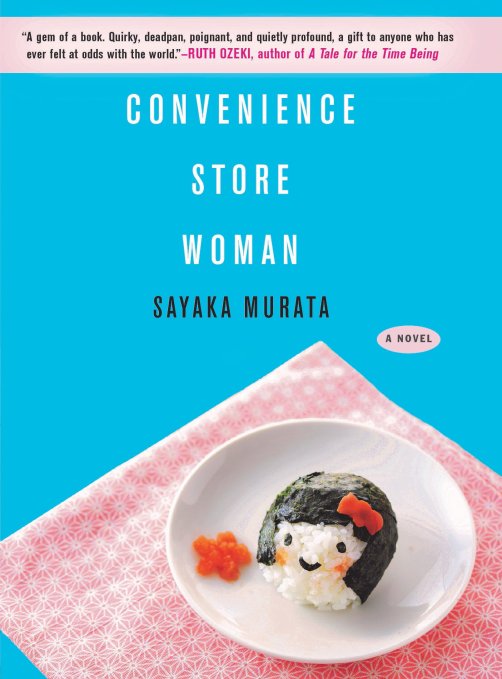
Chain convenience stores can feel as expendable and as predictable as the products they sell. Bright lights, pre-packaged food, headache medicine, cold drinks, and coffee — all arranged in the same places, all sold with the same smile. All pretty soulless.
But is it? One person’s banality is another person’s lifeline in this short, quiet, and surreal novel about a woman who works in a convenience store in Tokyo.
Keiko Furukura is both your most ordinary and extraordinary convenience store worker. As precise, practical and methodical as the Japanese aesthetic embodied by the convenience store where she works, Keiko has been in the job for years. And she is disconcertingly content with it, devoid of any of the ambitions or boredoms, or elations or sadness, shared by her friends and family, and likely you and me. Her particular outlook becomes the norm for how we start to see her world.
Like the store, and Keiko herself, Murata’s writing brings a stylized, calm cadence to the world she depicts. Dark comedy is there, but even if you don’t see it, the world goes on. And, because of that cadence, when Keiko’s life takes a turn, the effect is especially jarring — tense, even.
The novel is a fascinating peep into a slice of Tokyo life. And its brief length means you can consume it in one long sitting or over a few days — not a bad thing in a year when so many people have complained that they’ve been unable to read books.
Indeed, in this pandemic period, when our own lives have been reduced down to a small set of routines, Convenience Store Woman is a welcome escape, even as it resonates strongly.
Price: $13 from Amazon
The Price of Peace: Money, Democracy and the life of John Maynard Keynes by Zachary D. Carter
Random House, 2020, 656 pages
Recommended by Sarah Cannon, partner at Index Ventures
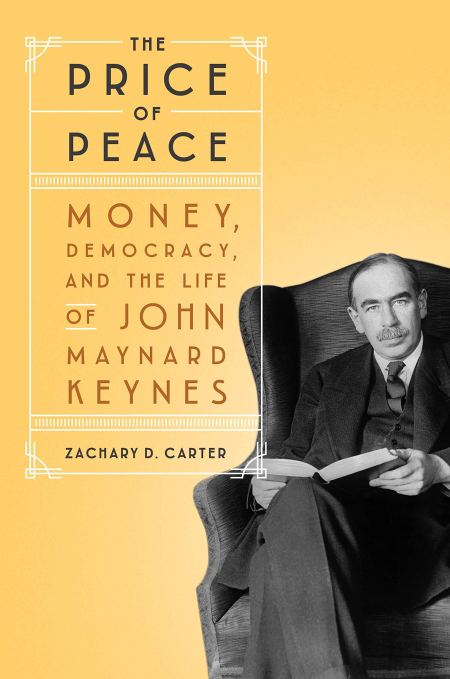
To start, I must reveal my bias which is that Keynes is my favorite economist. Regardless of whether one shares my admiration for Keynes himself or his economic philosophy, The Price of Peace provides an economic history of his ideas and policy experiences which are inextricably linked to the major economic crises of the twentieth century.
Keynes is credited as the intellectual architect of fiscal stimulus which felt particularly relevant in 2020 as we are experimenting with stimulus packages of unprecedented scale in the face of the pandemic.
In addition to being a fascinating history of ideas, the book presents a picture of Keynes’s life and relationship with his close circle of friends, the Bloomsbury Group, which included the likes of Bertrand Russell and Virginia Woolf. In American culture, I think we often obsess over individual genius but throughout history there are many groups of artists, writers and intellectuals who profoundly impacted one another’s works. Hoping to stumble on some such interdisciplinary salons in San Francisco when we open up again…
Price: $25 from Amazon
Jump-Starting America: How Breakthrough Science Can Revive Economic Growth and the American Dream by Jonathan Gruber and Simon Johnson
PublicAffairs, 2019, 368 pages
Recommended by Roy Bahat, head of Bloomberg Beta
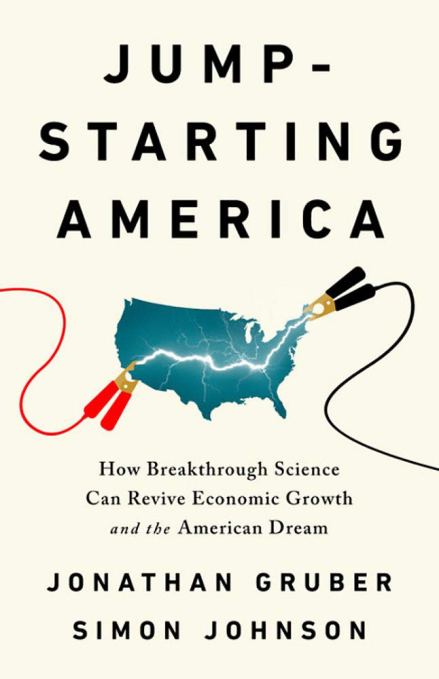
While we’re all thinking about the future of work, the only reason we have all the work we do today is because of government. All of tech exists, in part, because government-funded scientific research and business picked up the mantle. Today, as we’re struggling with how to get many places in America back to work, the best hope for “comeback cities” might be getting the band back together: government funding the science that business turns into the innovations of our daily lives.
Jump-Starting America presents a plan to get places around America growing again — by boosting public funding in scientific research and development.
Gruber and Johnson argue we should place new research and technology hubs in places with the need for growth. They point to dozens of cities in the U.S. that have the preconditions for success: a large pool of educated workers, high-quality universities, and a low cost of living. All those places lack is the scientific infrastructure to become new centers of innovation, and the private sector ignores them. “What these places need is a jump start.”
This book ranks cities across the country to identify those most ready for this scientific boost — see their map to explore places you care about.
Price: $13 from Amazon
You Again by Debra Jo Immergut
Ecco (HarperCollins), 2020, 288 pages
Recommended by Ron Miller, TechCrunch enterprise reporter
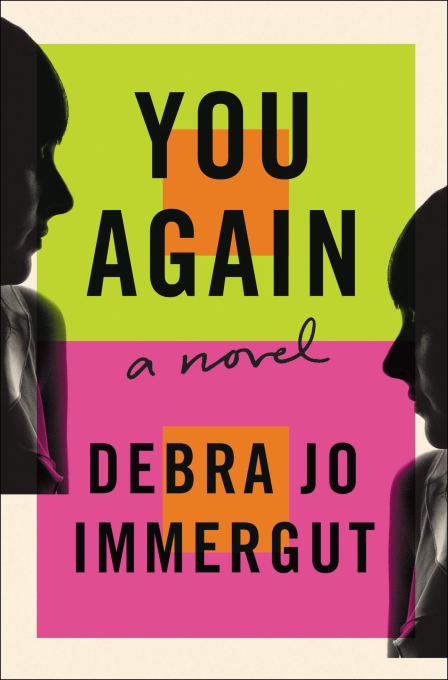
Imagine 40-something you sitting in the back of a New York City cab and seeing your 20-something self walking down the street. That’s the way You Again, a novel by Debra Jo Immergut opens. Abigail Ward is a woman in her mid-40s with a comfortable job, a seemingly good marriage, two teen sons and a house in Brooklyn, but something is missing in her life and it begins to manifest itself in her visions of her younger self.
Whether these visions are real or not is beside the point. Ward, who was a talented young artist in her 20s, has skeletons long locked away in her mind’s closet and she begins behaving in odd ways. While her son becomes involved in antifa, she starts down a path of increasingly risky behaviors putting her ideal suburban life at considerable risk.
While we search with the author for reasons for this increasingly odd behavior, Immergut slowly reveals more information about why Ward appears to be unraveling.
It is safe to reveal that the protagonist was a promising artist, that she was admired by her teachers and her classmates for her budding talent, and that she had a gift for color. Her early paintings, completed at around the age she starts seeing herself, were getting noticed in the New York art community.
We learn that she let all of that slip away for the comforts and mundane realities of suburban living — having children, paying bills, buying groceries and living her life. She spends her days in a cubicle designing ad campaigns for a pharmaceutical company. It’s a considerable step down from the artistic vision she had of who she was and where she would end up at 45.
The story catapults along, a mystery wrapped in this woman’s behavioral enigma as these meetings reveal more information. While the book brings together a compelling plot line involving lost dreams of youth, personified by these visits with her younger self, I’m not sure it completely succeeds in carrying it through to a satisfying conclusion.
You will have to read it to reveal the details and the reason behind all of this, but I was left wondering, even when Ward’s motives are ultimately revealed, if I believed that this woman, this character as defined in these pages, would have behaved this way. I still admit to being riveted, to wanting to find the answers to these questions, I’m just not sure I was satisfied with the answers.
Price: $19 from Amazon
Principles by Ray Dalio
Simon & Schuster, 2017, 592 pages
Recommended by Aaron Holiday, co-founder and managing partner at 645 Ventures
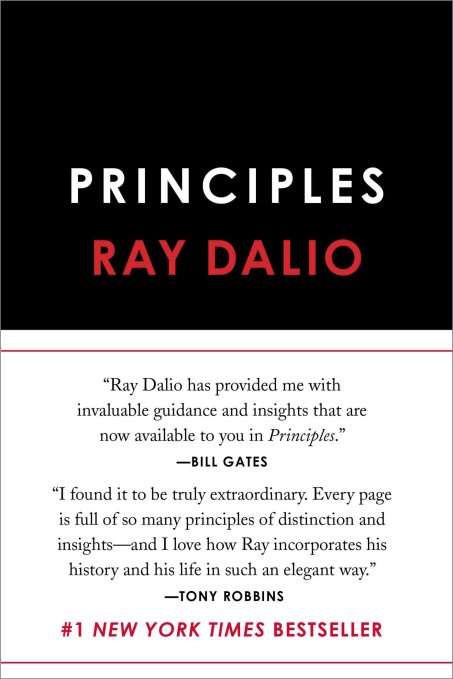
In a year of radical change and uncertainty at almost every turn, reading Principles kept me grounded through the turbulence of 2020. In his book, author Ray Dalio, the founder of Bridgewater Associates, shares insights on life, investing, and much more.
Bridgewater, the world’s largest hedge fund with $130 billion in assets under management, was built upon a set of principles that serve as a cornerstone of the firm’s success. Those principles and decision-making frameworks, articulated in the book, have been profoundly impactful on our own leadership team at 645 Ventures. They have been especially valuable as we closed our largest fund to date and seek to build the firm through and beyond the COVID-19 pandemic.
In the early days of building our fund, we’ve seen first-hand how important it is to distinguish luck from success, especially as it relates to intrinsic performance. Dalio emphasizes that the optimal frame of mind for great leaders is to be humble and open-minded in order to develop the strong mental maps that guide decision-making. This principle stands the test of time and repeatedly drives success, as do several others that Dailio introduces, such as “The who is more important than the what” in hiring, and the importance of self-reflection and owning your “ego and blind spots.”
The wisdom of Principles is universal enough to serve a range of purposes and people, and it is an especially important reference guide for this generation of founders daring to build iconic businesses. We aspire to live these principles in our own firm, and we often see them in the founding teams of our most successful portfolio companies.
Price: $17 from Amazon
Love and Other Thought Experiments by Sophie Ward
Corsair (Hachette), 2020, 256 pages
Recommended by Catherine Shu, TechCrunch writer
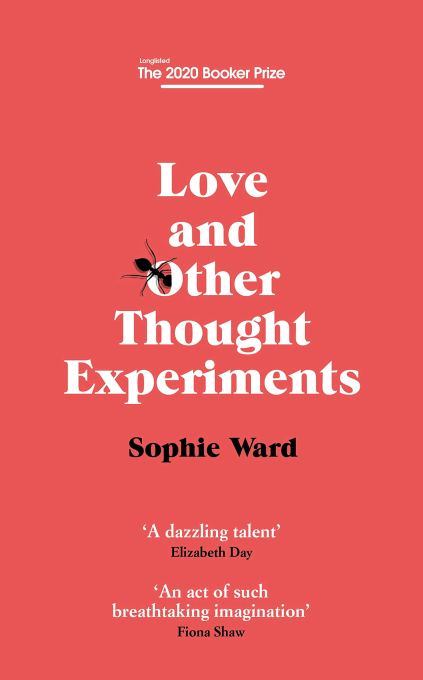
I have to admit that the main reason I picked up Sophie Ward’s debut novel, Love and Other Thought Experiments, is because she was one of my favorite actors when I was a kid. If you grew up in the 1980s, you might remember Ward from movies like Young Sherlock Holmes and Return to Oz.
While continuing to act, Ward launched a writing career, too, publishing essays, short stories and the 2014 book “A Marriage Proposal; the importance of equal marriage and what it means for all of us.” She also somehow found time to complete a PhD at Goldsmiths, University of London, that focused on the use of narrative in philosophy of the mind.
All those paths converge in Love and Other Thought Experiments, which was long-listed for this year’s Booker Prize. The novel centers around Rachel and Eliza, a couple whose bond becomes fraught when Rachel is convinced an ant has crawled in her eye and started living in her head. Eliza, a scientist, quietly struggles to understand and sympathize with Rachel, even as the two embark on parenthood.
Each chapter of the book is based on a well-known thought experiment (theoretical scenarios that help people understand philosophical principles), and told from the perspective of different characters as they find their way, and each other, through alternative timelines.
Honestly, the book is hard to describe. You might assume that a book based on philosophical thought experiments would make for onerous reading, but Ward’s genre-crossing narrative is so deft and engaging that it was a surprise to realize I had reached the last few pages.
2020 has often felt surreal. I know I’m not the only person who has started experiencing time differently — days, weeks and months feel like an interminable slough, yet there is too much happening at once for our brains to fully comprehend. Love and Other Thought Experiments was comforting, reminding me that when almost everything feels unmoored, there are always fundamental truths to find and hold onto, in our beliefs and our relationships.
Price: $15 from Amazon
The Dark Forest and Death’s End by Cixin Liu
Tor Books (Macmillan), 2015/2016, 512 pages / 608 pages
Recommended by Alex Wilhelm, TechCrunch senior editor
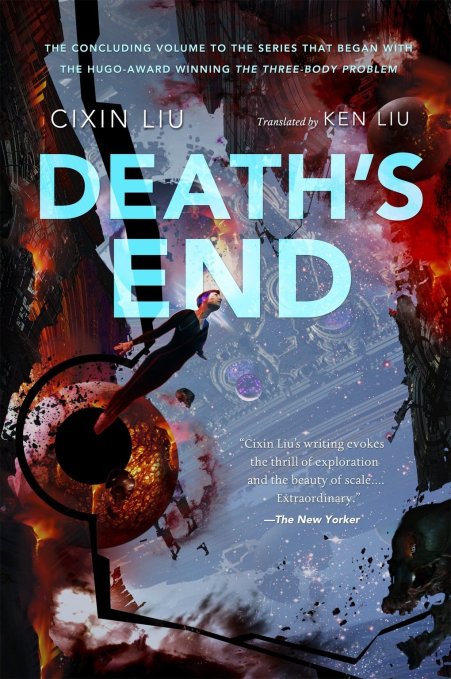
By now many of us have read The Three Body Problem, an incredible work of science-fiction and human imagination. Until this year, however, I hadn’t thought of reading the second and third books in the trilogy.
I was robbing myself of joy and didn’t know it.
Over the summer, during a week off, I powered through the sequel to The Three Body Problem, The Dark Forest and found it incredibly interesting. To avoid spoilers, I’ll just say that it made me rethink my lifelong desire to get off the planet and go somewhere else, and for humans to keep our outward push not only to the edges of our backyard — the Solar System — but also into the further reaches of our celestial neighborhood.
And then I read the next book, Death’s End. It’s long. There were a few moments when I was a little tired. But I cannot recall reading any other book in my life that was as consistently inventive and brilliant. It was so good, so surprising, so deep, so long and vivid, and so fundamentally human, that I even wound up reading a follow-up by a different author that started life as fanfic that was later made crypto-cannon. That was a first.
Death’s End is the book I want you to read, but you can’t read it alone. You need prior context to fully juice it. But as you deserve the adventure, the expanse, the ring of hope and loss, and the contemplation of our species that it will bring you, the work required will be entirely worth it.
The book is imperfect. Anyone who has read Cixin Liu knows that he has weaknesses. These are perfectly illustrated in a prequel of sorts to The Three Body Problem trilogy, Ball Lightning, that I recently finished. He’s not great at writing female characters. And his protagonists can, at times, seem to have overlapping personality traits and origin stories.
But those mistakes are merely human, while the distances that Death’s End took me too were much more; they were cosmic. I want to tell you more but spoiling even a page would be a damned waste, so go re-read The Three Body Problem — which I did not do before digging into The Dark Forest, and it was an error — and then move through the trilogy. Please.
(And if those two books do ring your bell, Anathem, The Mote In God’s Eye, and Fire Upon the Deep should be on your list as well.)
Price: The Dark Forest, $21 from Amazon | Death’s End, $21 from Amazon
One more thing…
Traction: Get a Grip on Your Business by Gino Wickman
BenBella Books, 2007 (updated 2012), 275 pages
Recommended by Garry Tan, founder and managing partner, Initialized Capital
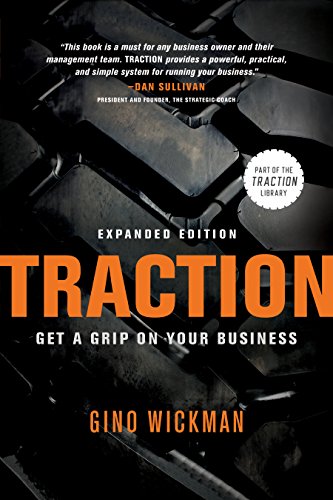
Actionable advice for business owners of all kinds, not just startup founders. A great reminder that not every business is a startup, but it is definitely true that every great startup must learn to be a great business if they are to truly reach their ultimate potential.
Price: $15 from Amazon























